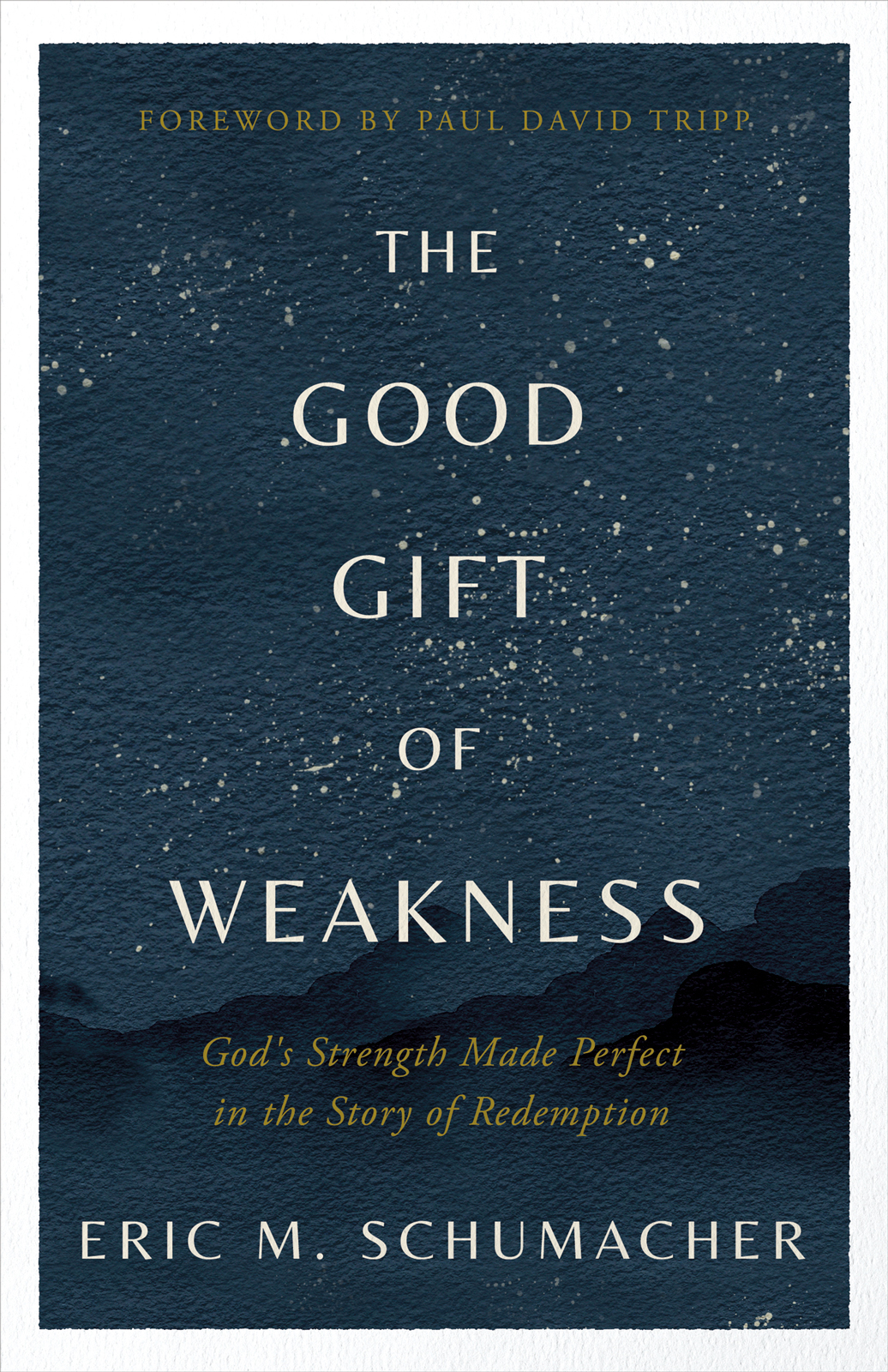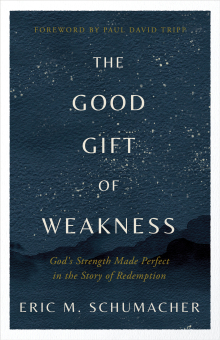
Release Date: June 2024
Page Count: 272
Size: 5 1/2 x 8 1/2
Binding: Perfectbound
ISBN: 978-0-7369-8866-7
Case Lot Quantity: 44
The Good Gift of Weakness
God’s Strength Made Perfect in the Story of Redemption
Sign in for Member Pricing! Not a Member? Register
This overview of the theme of weakness in the Bible offers readers practical encouragement and hope as they learn to view their frailties as part of God’s plan and purpose for their lives.
Our culture deifies strength—and sadly, the church does too. Who has the most successful ministry, the largest congregation, or the godliest family? Our misplaced faith in human strength is a false hope with no basis in Scripture.
But a closer look throughout the Bible reveals the central role human frailty plays in the redemption story. From Genesis to Revelation, God’s power is made perfect when people are at their weakest. Far from an undesirable defect, God designed our weakness to draw us closer to himself.
As you learn to accept the good gift of weakness, you will experience true strength—the kind that only comes from a loving and infinitely powerful God.
0 REVIEWS Leave a Comment »
FOREWORD
Paul David Tripp
October 16, 2023
I sat in my chair, physically unable to move. Multiple surgeries had rendered me weaker than I’d ever been in my life, and I was in the chair for one reason: I simply didn’t have the strength to get out of it. That chair was not my comfortable place to relax—no, it was my prison. I hated how weak I was. I hated my inability to do what I normally do. I hated how completely dependent I was on my dear wife, Luella, for just about everything. And my weakness made no sense to me. Here I was at the highest point of my ministry influence, yet unable to do the thing God had called and gifted me to do. I spent day after day in the chair, for two long months, before I had the strength to move around a little bit. But during those two months, a realization slowly dawned on me: I would be sick and weak for the rest of my life. The damage done to my body would not go away. There was a new normal and it was called “weak.”
What I’m about to say may surprise you. I’m very thankful for the travail that locked me into that chair. I’m very thankful that I was rendered that weak. In those two months, something wonderful and transformational took place. I began to understand that much of what I thought was faith in Jesus, in truth, wasn’t. What I would have named as trust in him was actually self-reliance. I had spent my life healthy and strong. I had enjoyed the ability to do things quickly and produce much. I was proud of both my productivity and my strength. But it was all a self-congratulatory delusion. I had no independent strength to be proud of. Everything I had ever produced was the result of the intervention of divine grace. In that chair, I began to acknowledge and confess my weakness. No, not just the present condition of weakness, but the weakness that was the story of my entire life. You see, my suffering hadn’t made me something different—it exposed what I had been denying about who I really was all along.
It is embarrassing to admit that, after all my years in ministry, it was only in those months that I began to understand and experience what it really means to rest in weakness and to trust Jesus for the strength that he, and only he, can give. Because of that, if I had to go through again all the suffering that locked me in that chair, I would gladly do it, because I now know—experientially know—the grace and glory of weakness. I had to come to the place of giving up hope in my strength in order to truly experience the transforming beauty of hope in Jesus.
Perhaps it is my own story that makes me love the book you are about to read so much. We are bombarded by stories of human strength, stories of self-made people who accomplish great things. And we are tempted to buy into the fantasy that we could be one of those heroes. But it is a delusion. There is no such thing as an independent human being. God created us to be dependent on him and on one another. Even in the utter perfection of the Garden of Eden, Adam and Eve were dependent. Yes, they were perfect people, living in a perfect relationship with God, but they were hardwired to be dependent on their Creator and one another.
So I am very thankful that my friend Eric Schumacher wrote a book, one not about the glories of human strength but about the grace and glory that is ours in our weakness. This book will confront your delusion of independent strength, it will comfort you with the amazing things God does in and through those who are weak, and it will remind you that Jesus stepped into your weakness so that you would know the strength that comes only from him.
There is one particular element that I love about Eric Schumacher books. He doesn’t just approach a topic from the perspective of the Bible. No, he unpacks the topic by giving you a tour of the Bible from Genesis to Revelation. This book helps you to examine each step of the biblical narrative through the lens of weakness. And because it does this, it enables you to see things in Scripture, perhaps for the first time or in ways you have never seen them before.
You may not think that you need to read a book about weakness— but you do, and here is why. One of Satan’s most powerful and deceptive tools is the delusion of independent human strength. If you buy into this delusion and think you are strong, then you won’t seek God’s help and strength and you won’t seek and celebrate the grace that makes that help available. The enemy of your soul will gladly give you your formal religion, with its theology, Sunday service attendance, small group studies, personal Bible reading and prayer, and episodic moments of ministry, if he can keep you from being humbly and completely dependent on the Savior for everything you are and have and do. Denial of weakness always means devaluing the grace of Jesus, that grace that is meant to be our only hope in this life and the life to come.
I am very thankful for this book. I have been convicted by its confrontation and encouraged by its comfort, and I think you will be too. It is only when we abandon our hope in our strength that we can begin to rest in the strength that is ours by means of divine grace alone.






 Whether you’re looking for answers to your own questions or seeking to explain the scientific evidence to others, The Comprehensive Guide to Science and Faith is an invaluable apologetic tool that will help you analyze scientific findings in light of the truths found in the Bible.
Whether you’re looking for answers to your own questions or seeking to explain the scientific evidence to others, The Comprehensive Guide to Science and Faith is an invaluable apologetic tool that will help you analyze scientific findings in light of the truths found in the Bible.


 Excerpts
Excerpts